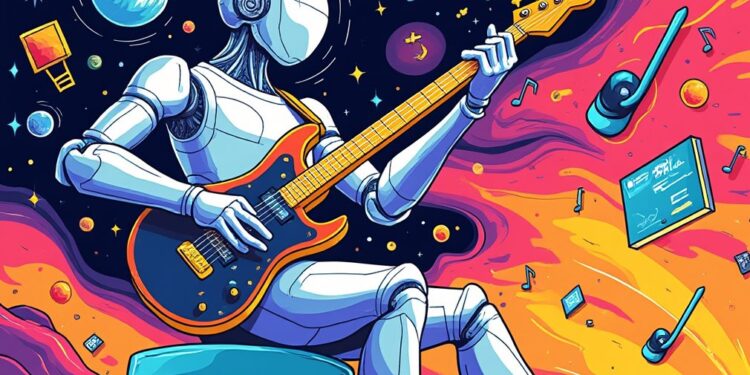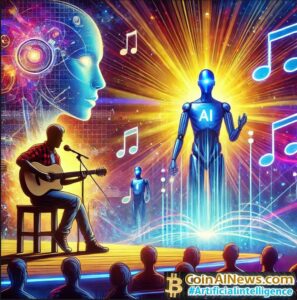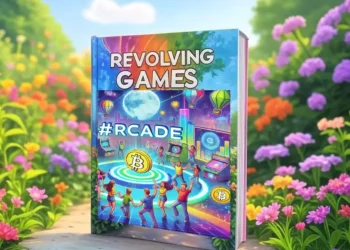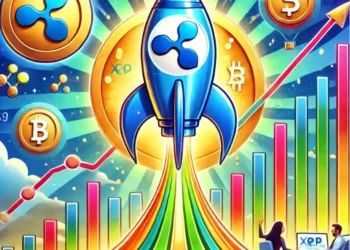The AI Symphony: A 25% Income Loss Looms for Musicians
n the ever-evolving digital age, artificial intelligence (AI) continues to make its mark across various sectors, with the music industry now feeling the crescendo of its impact. A global study has sounded the alarm for musicians worldwide, predicting a potential 25% loss in income within the next four years due to AI’s growing influence. This development raises profound questions about creativity, technology, and the future of human artistry in music.
The AI Beat Takes Over
AI’s ability to compose music, mimic voices, and even simulate live performances is not just a futuristic concept but a current reality. Platforms like Amper Music, AIVA, and even major players like Google’s Magenta project are pushing the boundaries of what AI can do in music. From generating background tracks for videos to crafting full compositions, AI’s role in music creation is expanding rapidly.
The Economic Note
The study, conducted by the International Confederation of Societies of Authors and Composers, suggests that while AI can enhance creativity, it also poses a significant threat to the livelihoods of human musicians. Here’s how:
- AI-Generated Music: As AI becomes better at creating music, from pop to classical, it might replace human composers in certain commercial applications where originality isn’t the priority.
- Live Performances: With advancements in holography and robotics, AI could potentially perform at events, reducing the demand for live human performers.
- Music Production: AI tools are becoming indispensable in studios, automating parts of the production process traditionally handled by human engineers, thus potentially reducing the need for human labor.
The Human Touch vs. Digital Harmony
However, not all is lost in this digital symphony. The human element in music—emotions, personal stories, and the unique touch of an artist—remains irreplaceable. AI can replicate patterns and styles, but it struggles to capture the essence of human experience that often resonates with listeners. Here’s where the debate intensifies:
- **Creativity and AI:** Some argue AI can be a tool that augments human creativity, offering new sounds and ideas that a composer might not have considered. Others see it as a threat to the originality and authenticity of music.
- **Legal and Ethical Considerations:** The ownership of AI-generated music, the rights to one’s digital voice, and how royalties are distributed in an AI-influenced environment are still legally murky areas.
Future Beats
The music industry might look very different in the coming years. Here are some potential scenarios:
- **Collaboration:** Human musicians might increasingly collaborate with AI, using it as a tool for inspiration rather than replacement.
- **Niche Markets:** There could be a rise in demand for live, organic, and “human-made” music, creating new market niches where AI’s influence is minimal.
- **Reform in Copyright Laws:** New legislation might emerge to protect artists in this AI-driven era, ensuring fair compensation and recognition.
Conclusion
The integration of AI in music isn’t just a technological transition but a cultural shift. While it’s true that musicians might face a financial downturn, the potential for new forms of art and expression through AI-human collaboration is vast. The future might not be about AI taking over but rather redefining the roles of all players in the music industry. As we stand at this crossroads, the melody of change is both thrilling and daunting, with every stakeholder needing to find their new rhythm in this AI symphony.










